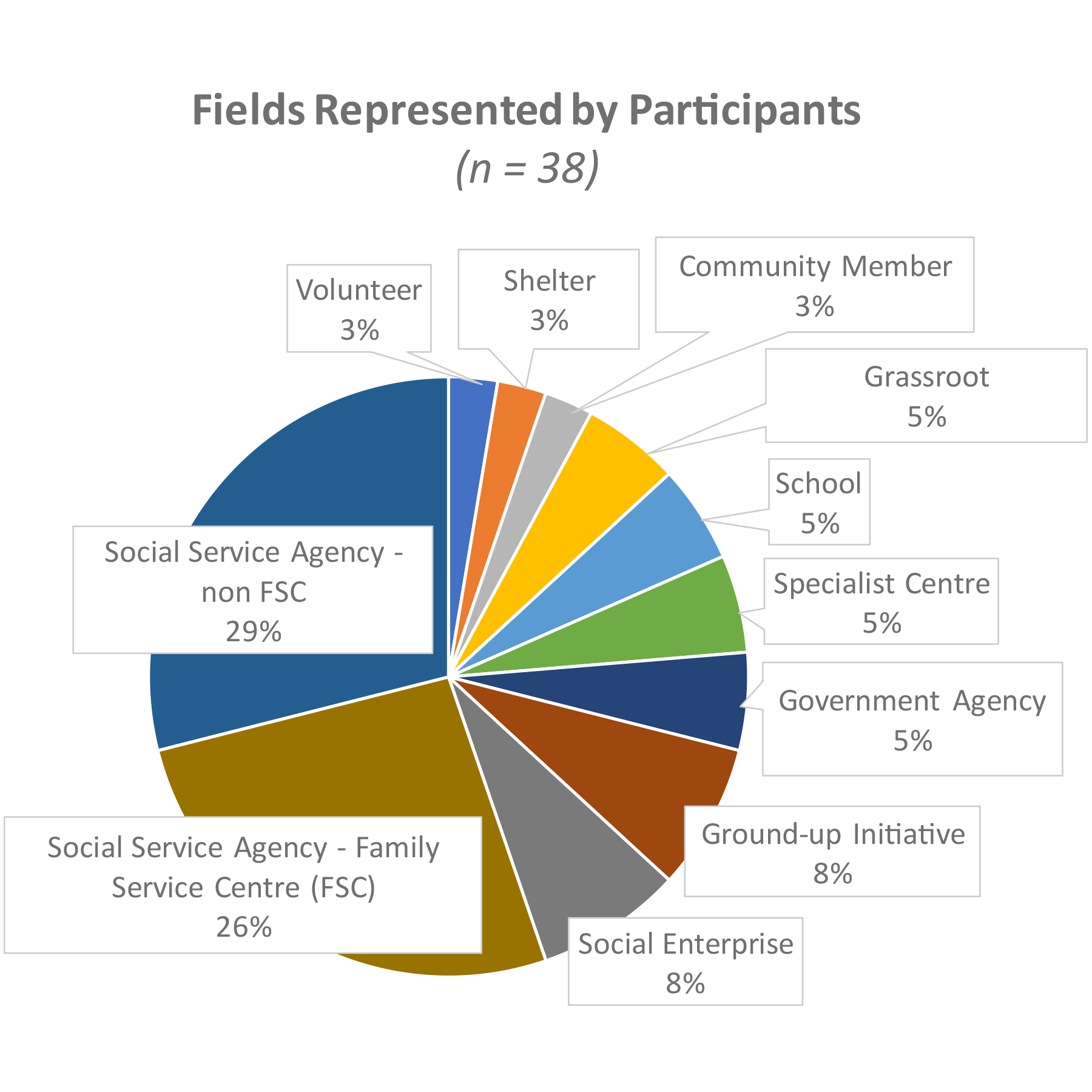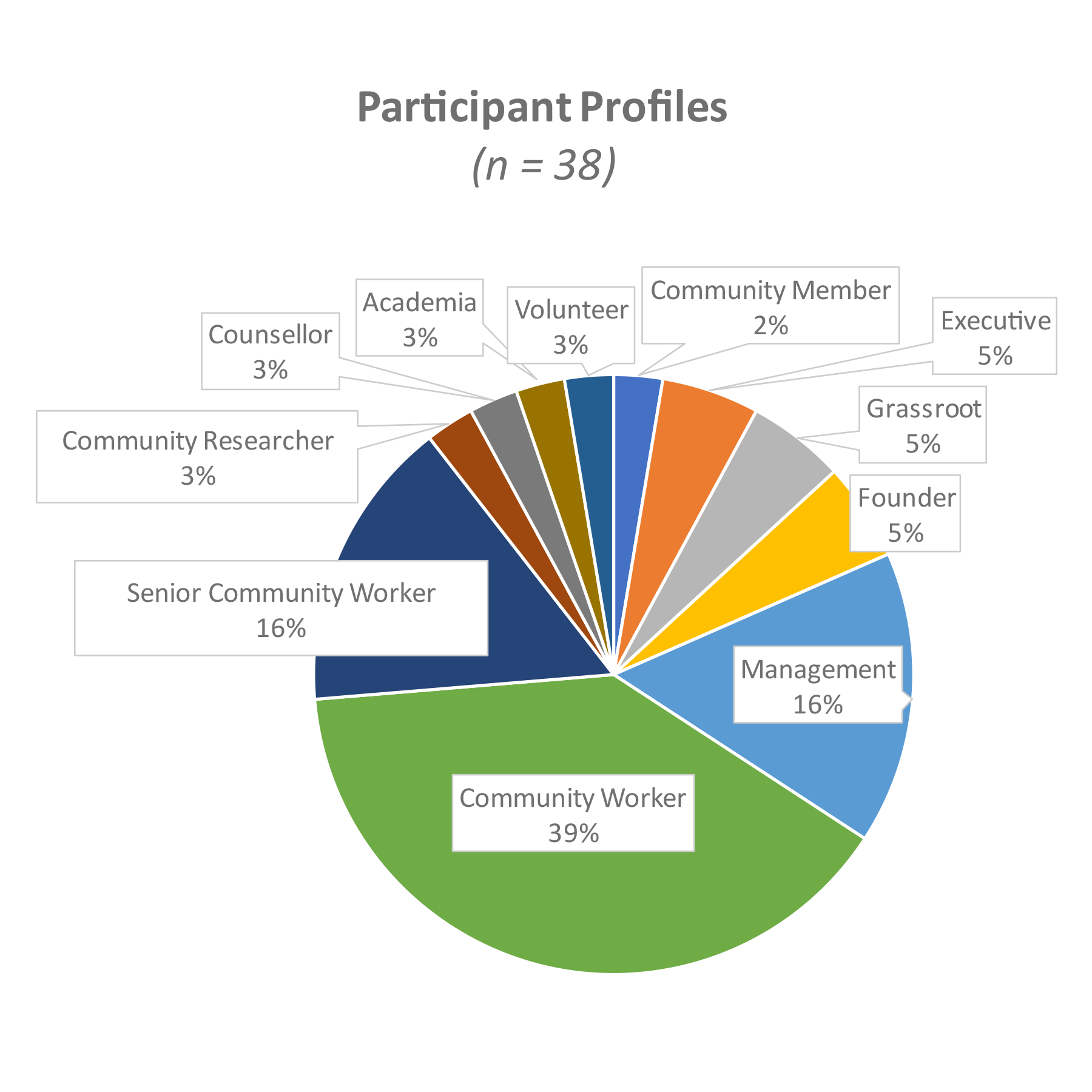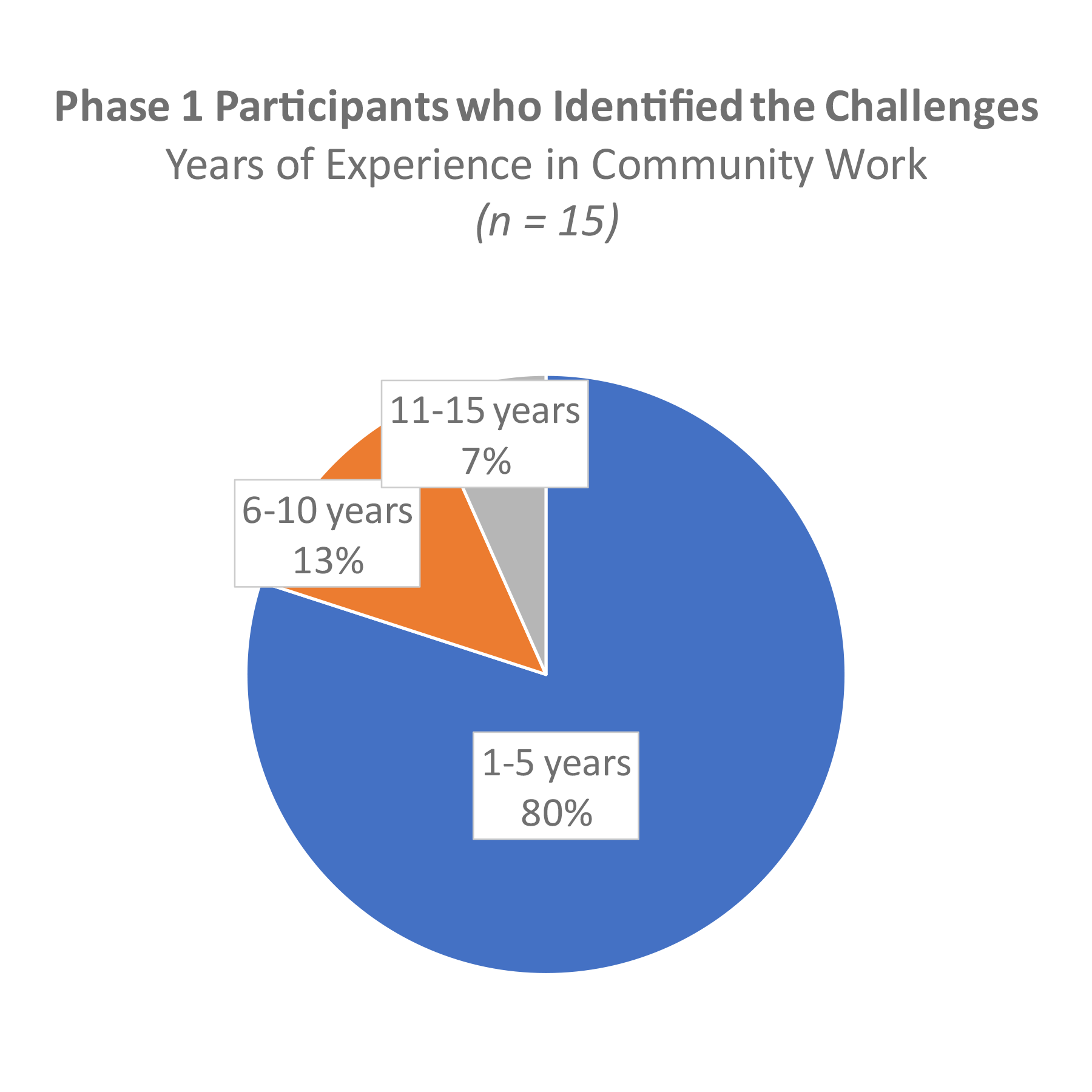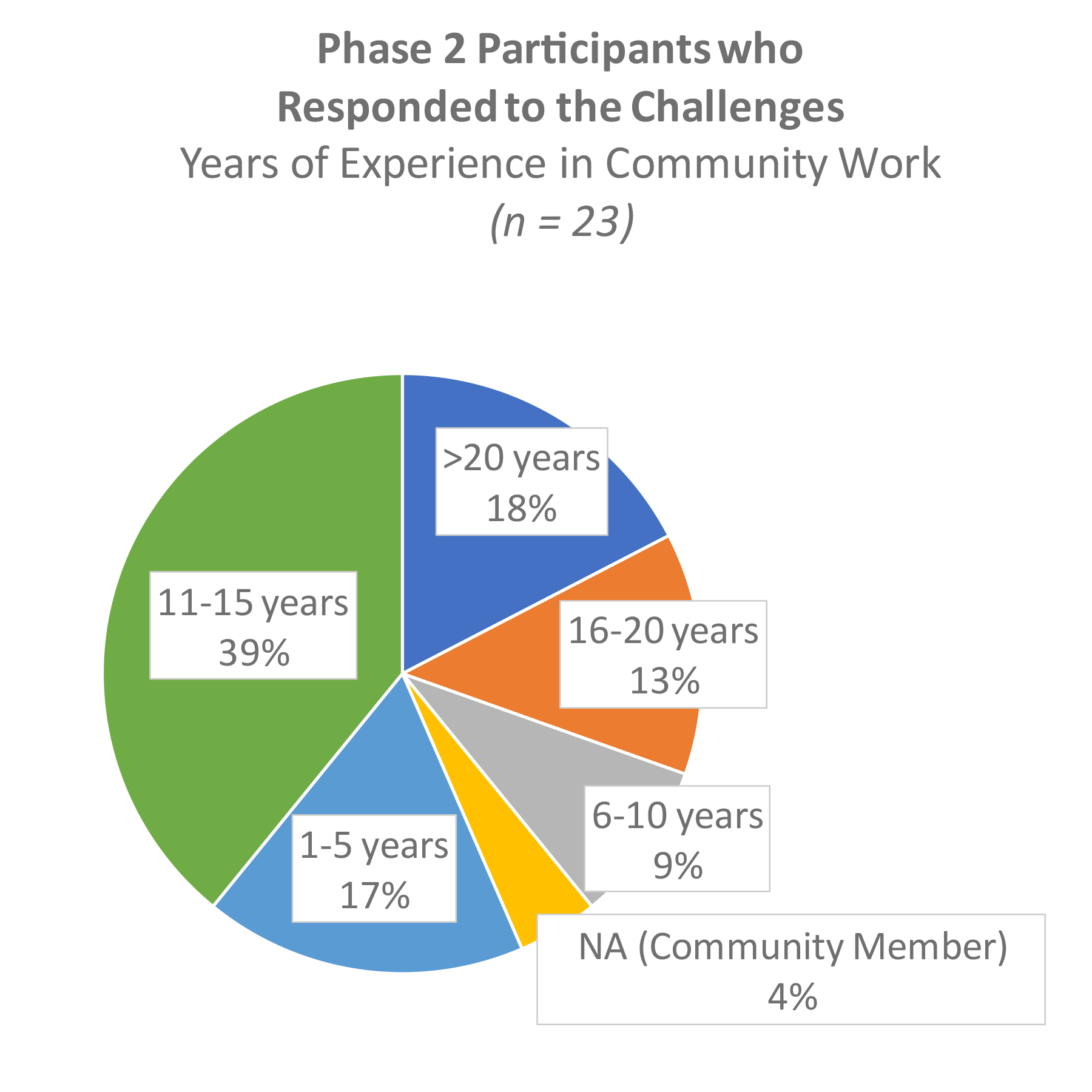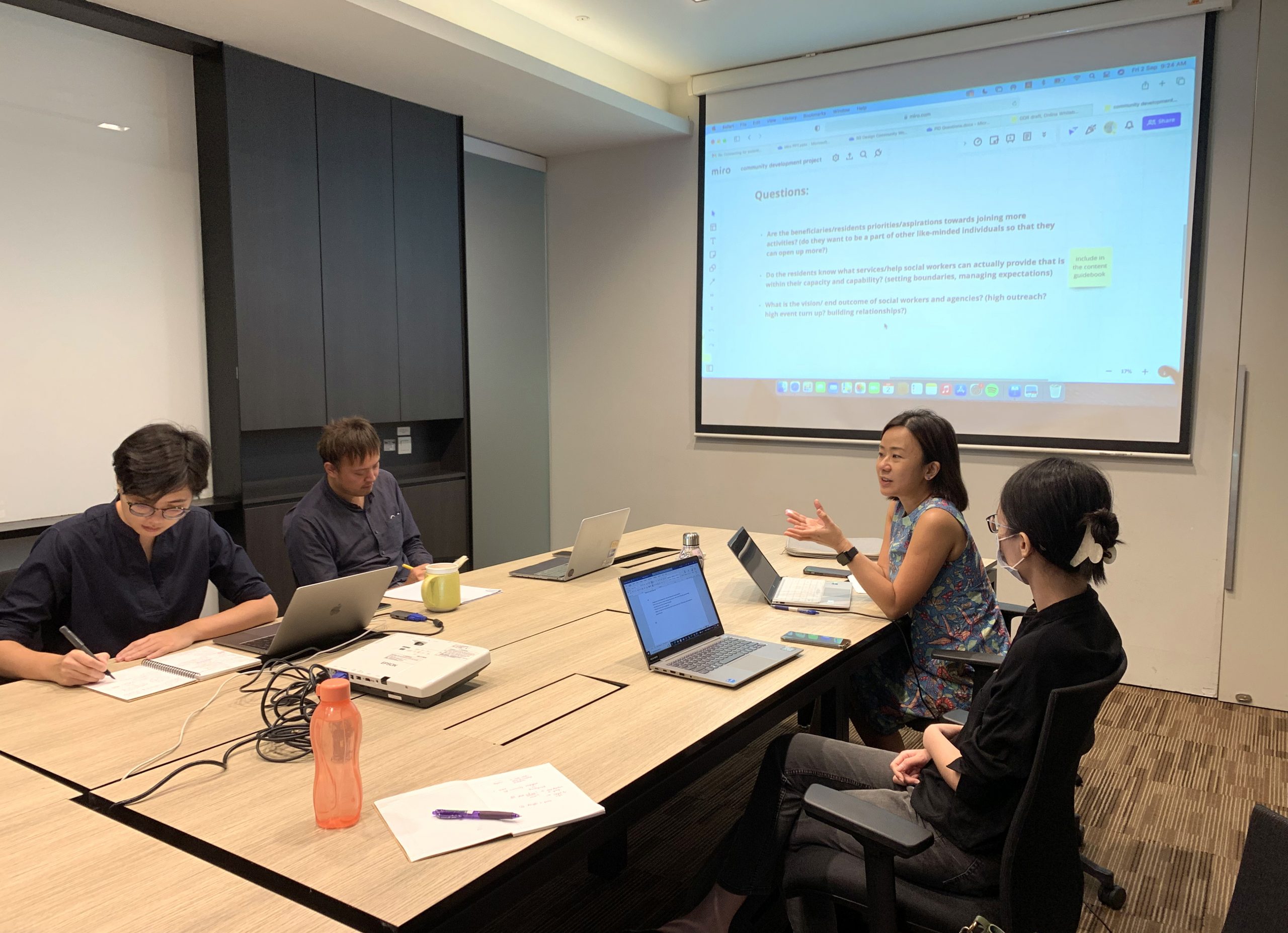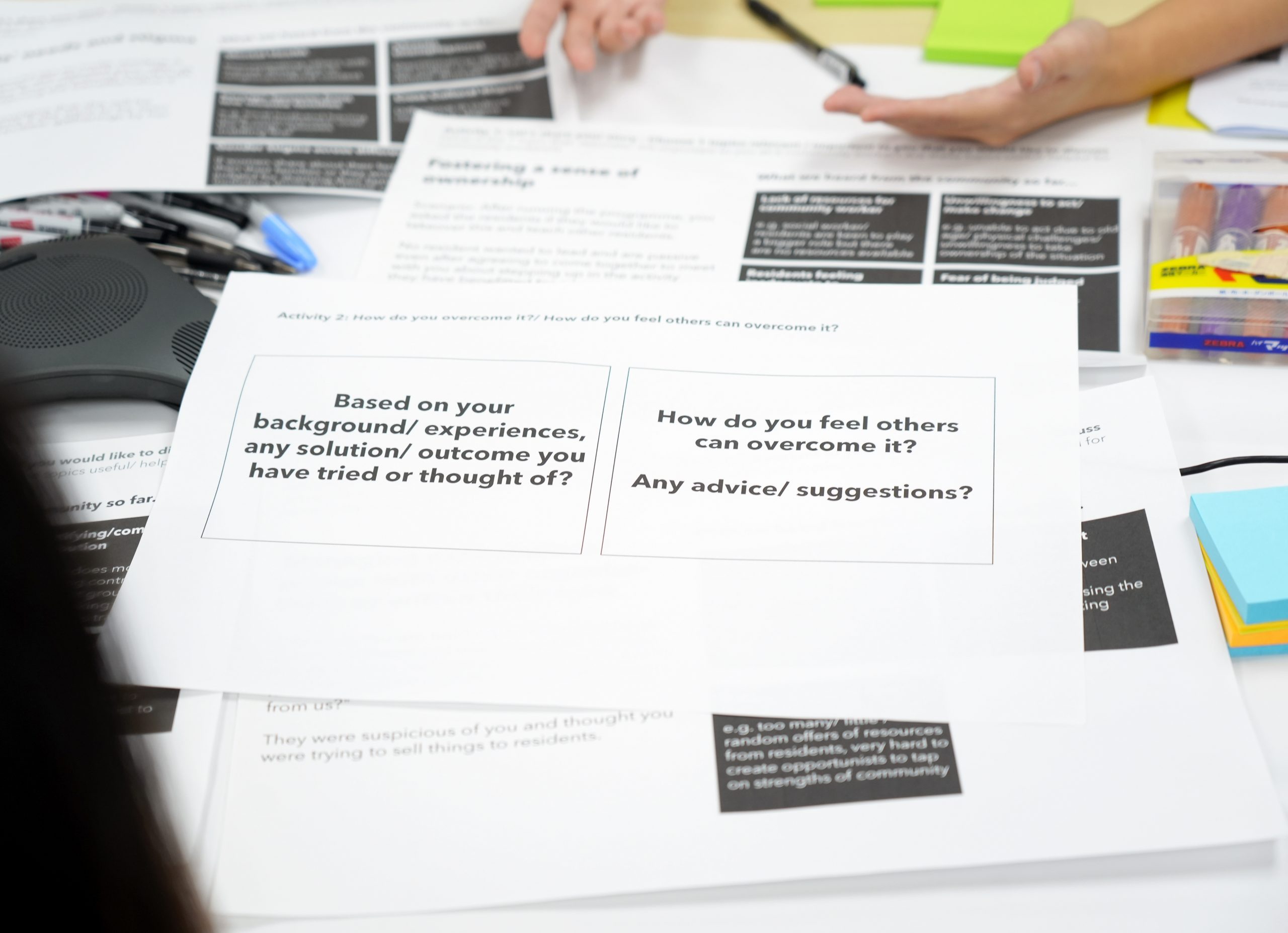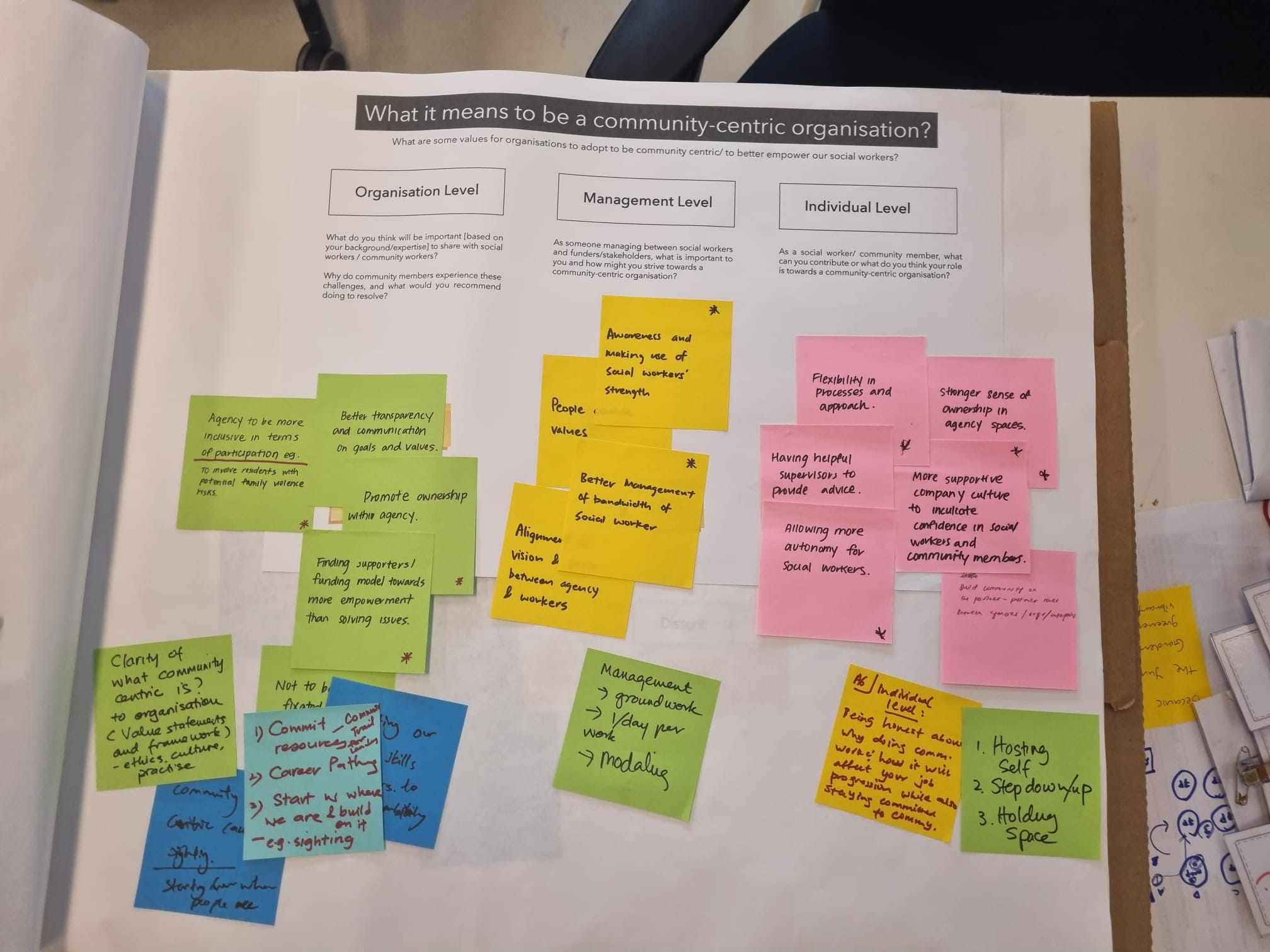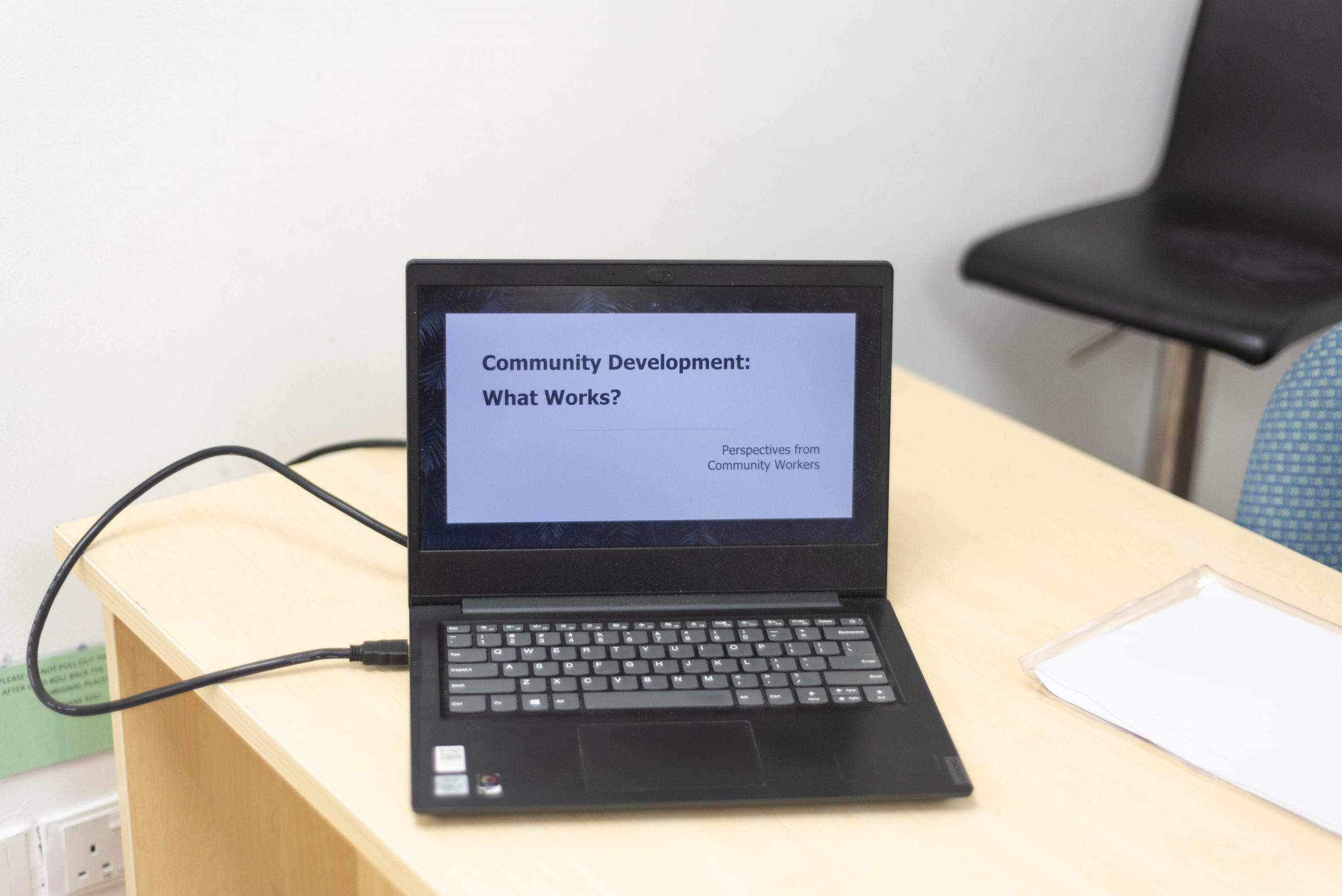Top 10 key findings
1. How to invite community members to come together is one of the top concerns. It is important to be visible in the neighbourhood and start with what community members care for instead of going in to “sell your ideas”.
2. Working with conflicts in community building is another top concern. Having Community Agreement Conversations before conflicts take place can help community members co-create group cooling measures. Alignment Conversations can be facilitated to restore relationships and harmony when conflicts affect community goals and emotional wellbeing,
3. Marginalised groups (e.g.: Individuals with mental health issues, persons who are unemployed, foreign spouses) would best benefit from being a part of a community and social inclusion, but often face stigma around their participation in community life.
4. Open groups in communities are dynamic and fluid, with different individuals joining and leaving at various points in time, making it harder to host conversations or establish trust and a sense of belonging.
5. Contributions focused on harnessing the assets of individuals, associations, and institutions in a community can take many forms. They are also what people value and are ready to give time to, what they care about within the community. It is important to support community members who wish to contribute more but have limited know-how.
6. It’s important to take time to build local capacities to co-create solutions for their own community instead of being prescriptive and rushing to problem solve for community members to meet Key Performance Indicators (KPIs).
7. Diversity gives space to challenges, but also creates potential for co-creating solutions through building conversations on common ground that would respond to the concerns of all parties.
8. Placemaking includes working with members to build a welcoming space that does not limit membership or access. Co-creating spaces with community members ensures the inclusion of their ideas, building a sense of ownership in the process.
9. Working on the use of self is important, such as finding comfort in handling rejection, understanding self-interests, and holding space for conversations. Be congruent, so that you are self-aware when your behaviour is inconsistent with values that you claim to have.
10. Community workers shared what community-centric non-profit organisations look like. The organisations should be guided by community concerns and focus on growing their ability to self-organise. A culture of solidarity, trust, safety, fun, and equal sharing of power is key to building community among workers.
